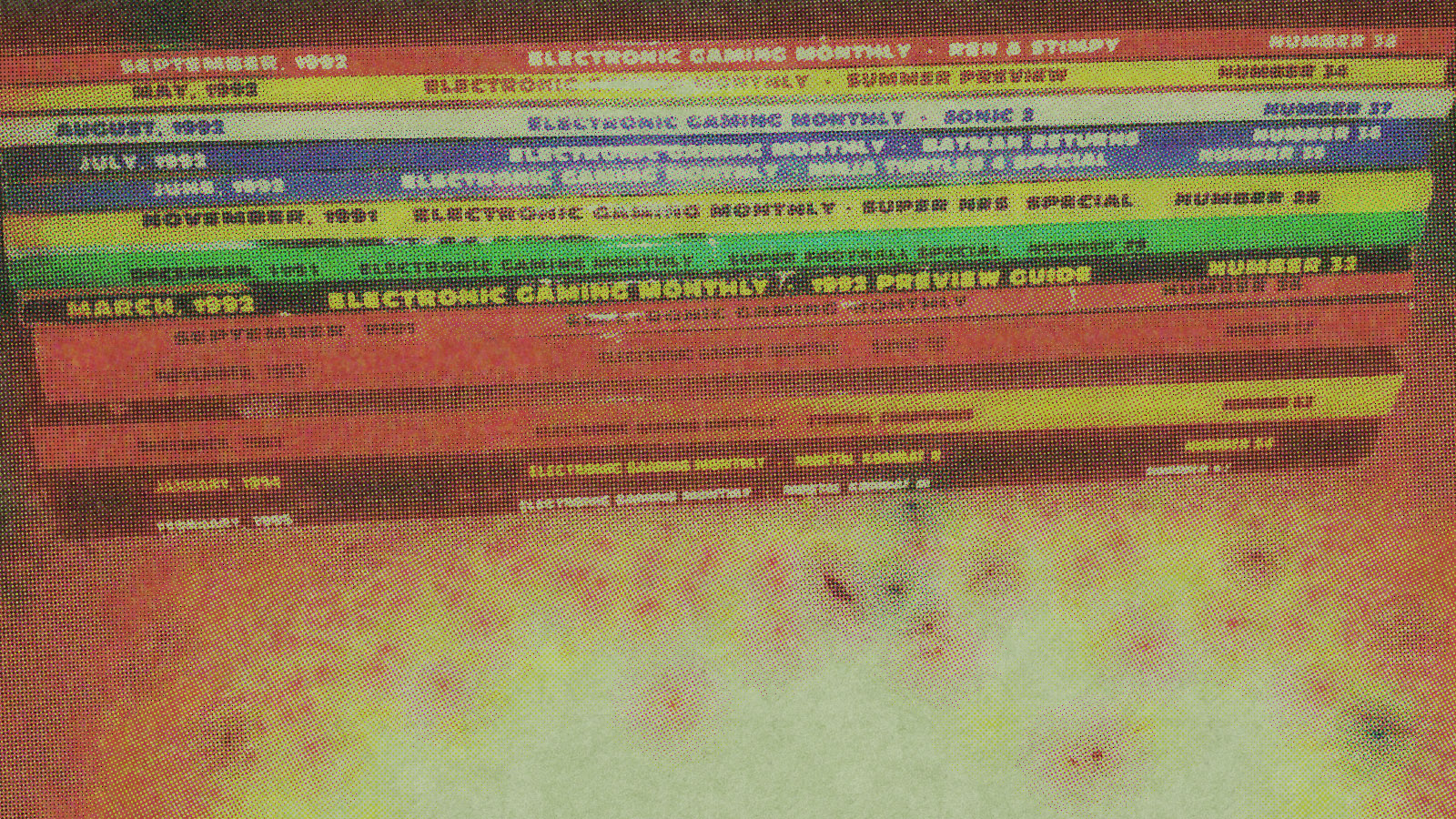
Kick Asteroids!
(and beat ten other video games too!)
Are you tired of embarrassingly low scores? Are you tired of getting twenty-five second games for your twenty-five cents? Are you tired of being publicly humiliated by people who can’t even read or write? Then it’s about time you learned a thing or two about video games.
Each video game presents its own challenges. Some games are excruciatingly hard and discourage even skilled players. Others can be played successfully on your first turn. Still, happily, there are many strategies that help the player in most games. All serious video players know these rules. I call them…
The Bylaws of The Awesome Player Society
Bylaw 1: Be Cool. Video game play can cause extreme stress. The anxiety it generates can be like that experienced by the boxer fighting Larry Holmes for the heavyweight championship. Destruction is constantly imminent, and split-second decisions must constantly be made, taking into account a dozen factors at once.
To make these decision you must be calm and confident. Tell yourself you are better than those spaceships and missiles. Pretend you are Burt Reynolds. If you are basically just too anxious to be cool, enter psychotherapy. When you score 100,000 on Defender, you’ll know it was worth it.
ASTEROIDS
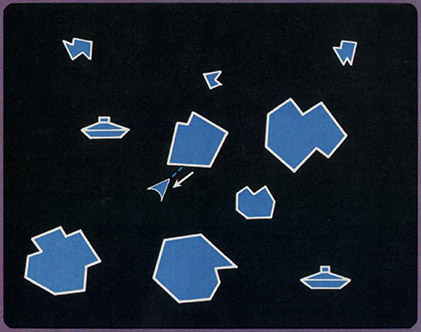
Bylaw 2: Defense! Defense! If you keep one word in mind, that word must be defense. Many players concentrate too much on destroying opposing forces and grabbing big points as fast as possible.
But concentrating on points is not the key to a high score. They key is to survive. If you stay alive, you can play forever, running up millions of points, even if you’re the worst shooter in the arcade. But if you are destroyed quickly, you will get a low score even if you fire shots as precisely as Joe Montana fires footballs.
To play defensively you must pay primary attention to the chief threats to your existence. In Asteroids, be careful to evade the fire of the small saucer. In Defender, do everything you can to keep the Landers from turning your last man into a Mutant. In Pac-Man, don’t be so hungry to gobble up more dots that you make a video sandwich of yourself between two speeding monsters.
SPACE INVADERS
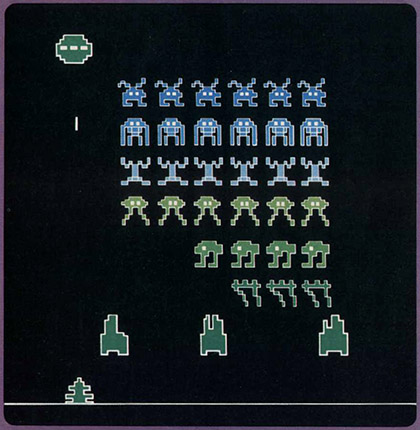
And don’t just avoid these threats: In Asteroids, for instance, hit small, fast rocks that are rushing toward you before you bother with fat, slow ones that are drifting away. In Defender, wipe out the Landers before pigging out on the points from a single Pod.
Bylaw 3: Fire Furiously but Not Foolishly. An obvious sign of the new boy or girl on the video block is the slow firing of shots, lasers, and missiles. The beginner may blast off one shot every few seconds. The veteran, however, will look like an amphetamine-crazed bongo player, often banging out ten times as many shots in the same period.
There are many advantages to shooting rapidly: You have a chance to hit more targets and you can atone for shots that miss with shots that strike home. With multiple shots at the same target, even if you don’t change your position between shots, there’s also a good chance the target will move into your line of fire.
Still, don’t waste your weapons. In many games you must save shots and bombs so you’ll have enough for emergencies and for all the attack waves you’ll face.
CENTIPEDE
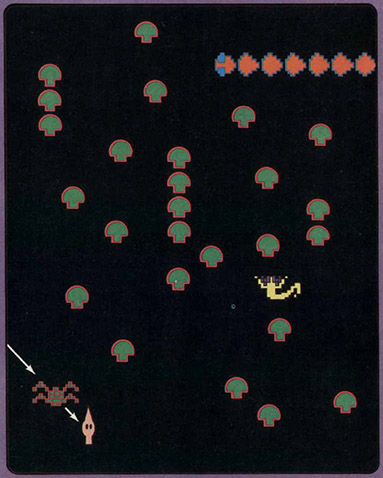
Bylaw 4: Pig Out When the Slop Is Handy. An occasional machine will offer you a free lunch (easy points for even the novice). In Defender, Smart Bomb and 1,000-point Pods when lots of them are stupidly floating around in the same place. In Asteroids, don’t blast away every rock only to have a bigger rack of rocks drift onto the screen; instead, leave one or two rocks alone and hunt the 1,000-point saucer. In Missile Command, don’t knock out the twenty-five-point ICBMs to defend cities that have already been vaporized; aim your missiles at the high-point Sputniks, planes, and smart missiles.
Bylaw 5: Not Too Much or Too Little, but Just Right. Know your weapons and escape mechanisms. The classic error of the Defender novice is to forget to use his Smart Bombs—which wipe out every enemy within a large area—before the game is over. Don’t overuse your ultimate weapons either. Another error of the inexperienced Defender player is to use all his Smart Bombs early and have none left when they’re most needed.
Similarly, use your escape devices when necessary but not on a whim. Hyperspace and Shields usually have their dangers as well as benefits. In Asteroids, for example, the player can escape any hazard by hitting the Hyperspace button and simply disappearing from the screen. But this comes with a certain risk: the player’s ship will explode on return from Hyperspace about one in every four times the mechanism is used.
DEFENDER
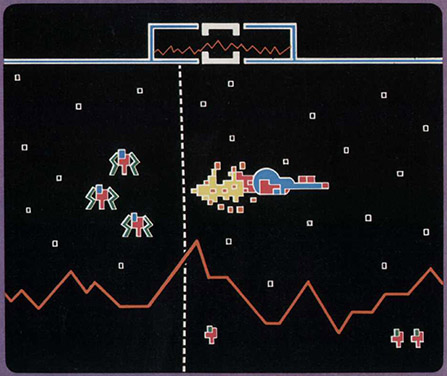
The basic rule of ultimate weapons and escape systems is never to use them when something else will keep you alive and always to use them when nothing else can save you.
Bylaw 6: Be Ship-Centric. The more complex the game, the more enemy vehicles and weapons you must keep in mind. But keep your attention on yourself—the device on the screen that represents you. In Space Invaders, Galaxian, and many other games, it’s the mobile Laser Base at the bottom of the screen. In Asteroids, Defender, and another large group of games, it’s the spaceship in the center of the picture.
If you are represented by multiple devices (as in Missile Command, where you have up to six cities and up to three missile bases), never Jose track of any of them. If you are represented by a single ship or base, never take your the object for more than a fraction of a second. Be ship-centric. A young woman at Albany Bowl in Albany, California, achieved perfect unity with her Asteroids vehicle. “I am the ship,” she said.
MISSILE COMMAND
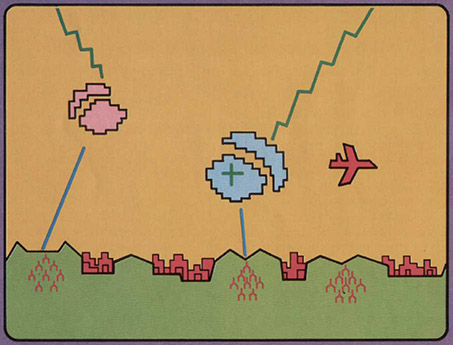
Be confident you will wipe out lots of murderous enemies without constantly looking right at them. Peripheral vision is enough to keep your aim quite accurate, especially once you’ve developed a feel for video games.
Bylaw 7: Practice Makes Less Imperfect. Nobody plays video games perfectly. Unless it’s unplugged, any video machine will eventually beat any player. But any video player, however proficient, can get better.
Practice is not the same thing as unloading bags and bags of silver coins. How efficient your practice is depends on how you use that money.
To avoid playing like a newcomer it’s a good idea as soon as you have picked a game to pour out a lot of money on it in a single day. Five dollars is a good ballpark figure. If you don’t have $5 to spend, then watch $5 worth of the game played by other folks. Pay special attention to good players and to players who use novel techniques. Your long initial immersion in the game will allow its basic elements to sink in. Once the e rudimentary aspects have become second nature, you can move on to difficult moves and tart racking up serious points. Consider the tennis player: He’s not going to look good as long as he still has to try hard to remember to hold the racket tightly and get back to the center of the baseline. Once those skills become second nature, however, he can start thinking about rushing the net and smashing overheads.
Equally important, playing a lot of games will sharpen you coordination in general and will improve the skills demanded by the game you seek to conquer. You’ll learn to make your ship do what you want and you’ll develop a sixth sense that warns you when a particular kind of enemy is about to approach and that guides your hand in the right motions to maneuver your ship and fire your weapons.
That is the obvious element of practice: to learn and improve skills. The less obvious aspect, very important but uncommonly seen, is to practice isolated techniques.
A football quarterback doesn’t spend all his practice time in scrimmages: Instead, he practices taking the ball from the center, handoffs, screen passes, the long bomb; he even practices collapsing safely under the weight of three defensive linemen. The quarterback practices each of these skills over and over until he has mastered them. Similarly, the basketball player may spend an hour doing nothing but shooting free throws.
Just as the best way to learn a specific video game is to play it over and over, the best way to learn a specific video game technique is to use it over and over. In one game, concentrate on aiming your shots. In another, work on maneuvering your ship or ambushing the ememy by lurking in a particular part of the screen. ln this sort of practice you will not get your best score, but you will be doing your best to improve your future scores.
Bylaw 8: Keep Your Mind in Mind Closely monitor your mental state. Try hard to concentrate throughout the game. A brief mental lapse can ruin an otherwise brilliant game. Concentration tends to be highest during the first and last games of a series on a single type of machine. During the first game the player generally is freshest and the game seems most novel. In the last game the player knows it is his last chance to do well before leaving the machine. You can use this first/last phenomenon to your advantage: Either play only two games at a time on each machine or tell yourself each game after the first is your last even if perhaps it isn’t.
The Bylaws Of The Awesome Player Society apply to just about every game you’ll see. Here are few other tips you should keep in mind for future games…
QIX
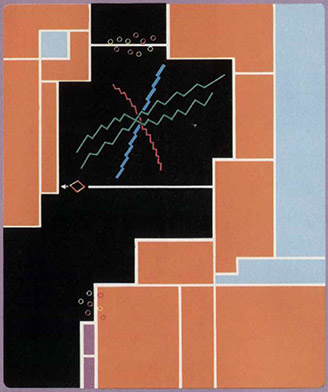
Watch other players play a new game. You should concentrate on players who are running up unusually high scores or are using strategies you haven’t seen before. Between their games, ask them questions on how and why they made particular moves.
Most obviously you can play the new game yourself. Play it over and over the first time you try it: This will quickly give you a “feel” for the game, and in each game you will efficiently build on what you learned in the previous one. Experiment with the game, not worrying about the score. Determine the limits of each control: How fast can you go, how high, at what angles; how long does the shield last? Determine the characteristics of each object on the screen: What happens when you shoot it (does it totally disappear, does only part of it break off, does it explode into a swarm of even more dangerous objects?), what happens if your don’t shoot it (does it attack you, i it joined by other enemies?)?
Make careful mental notes of what you learn. If you’re willing, even take written notes. Don’t laugh: The first known player to exceed 1,000,000 points on Defender not only was smart and quick: he also took pages of notes on small details of the game. In addition to points already mentioned, here are some important questions to answer about each game:
MONACO GP
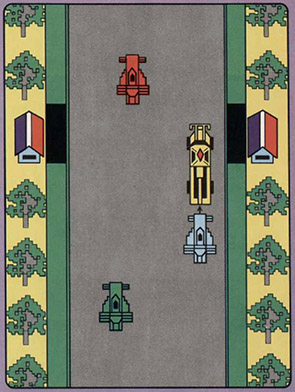
1. What are the objects in the game (bases, ships, missiles, bombs, beings, obstacles)? What are the offensive capabilities (such as shots and bombs) and defensive capabilities (such as evasion and Hyperspace) of each object? What are the limits of each offensive and defensive capability (such as number of shots at a time, range of shots and bombs, lifetime of shields, percentage of times in which Hyperspacing ends in destruction on reentry)? How many points are awarded for each enemy object’s destruction? How many of each object are there in each wave? Do the objects have sensitive and insensitive parts (for instance the tip of the player’s ship in coin-op Asteroids can be struck by a rock with no ill effects)? At what point are you awarded a new base or ship or additional weapons? What happens when all of one type of enemy or friend is eliminated: Is the wave over, are all of a certain type of enemy suddenly reincarnated (as in the fifth stage of Phoenix), is there a catastrophic transformation of enemy forces into a far more fearsome group (as in Defender)?
2. In what ways does the game get harder as it continues? Is there more of each enemy object in each rack after the first, do new enemies show up for the first time, do obstacles increase, does everything move faster? What is the number of the hardest wave? Is there any wave that is easier than an earlier one (like every fifth wave in Defender, when you return from space to the planet to find all ten of your men back in place)?
BATTLEZONE
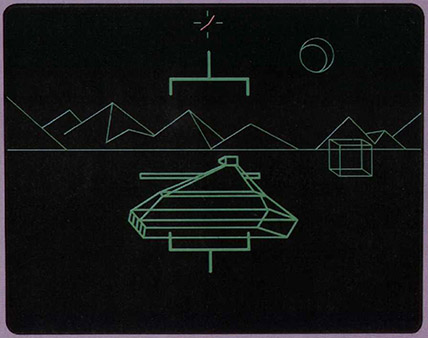
3. What are the video displays and audio warnings that help you know how you are doing and what to do next? Where and when are points displayed? Are there digital displays on the screen or cabinet that tell you how many bases or ships you have or how many of each weapon or other object are left or that tell how much time or fuel remains? ts there a radar screen or other small screen informing you about the area not appearing on the main section of the screen, what does it show, how accurate is it? Are there sounds (like the squeak of each abducted man in Defender) or spoken warnings (like “Laser temperature critical!” in Astro Blaster) that warn you of an impending disaster that you can avoid?
4. In the game’s program, are there are any “bugs” or other characteristics a player wouldn’t expect to find? Are there giveaway periods, as in Defender or coin-op Missile Command, where the machine suddenly awards vast numbers of ships, weapons, bases, or cities for no reason at all? Does the game have vulnerabilities that may not have been intended by the designers but that can be exploited by the player (like coin-op Asteroid’s weakness against the strategy of hunting saucers)? Are there surprising video or audio effects you can cause in order to gratify yourself or impress your friends (like chasing right behind dangerous Monsters by using a certain pattern in coin-op Pac-Man or like knocking off coin-op Space Invader aliens in the right order to create a rainbow)?
5. Most important: How do you inscribe your name or initials on the screen of the machine in order to proclaim yourself as the greatest video star to play it?
COPYRIGHT © 1982 BY CRAIG KUBEY PUBLISHED BY WARNER BOOKS/NEW YORK
Source Pages







